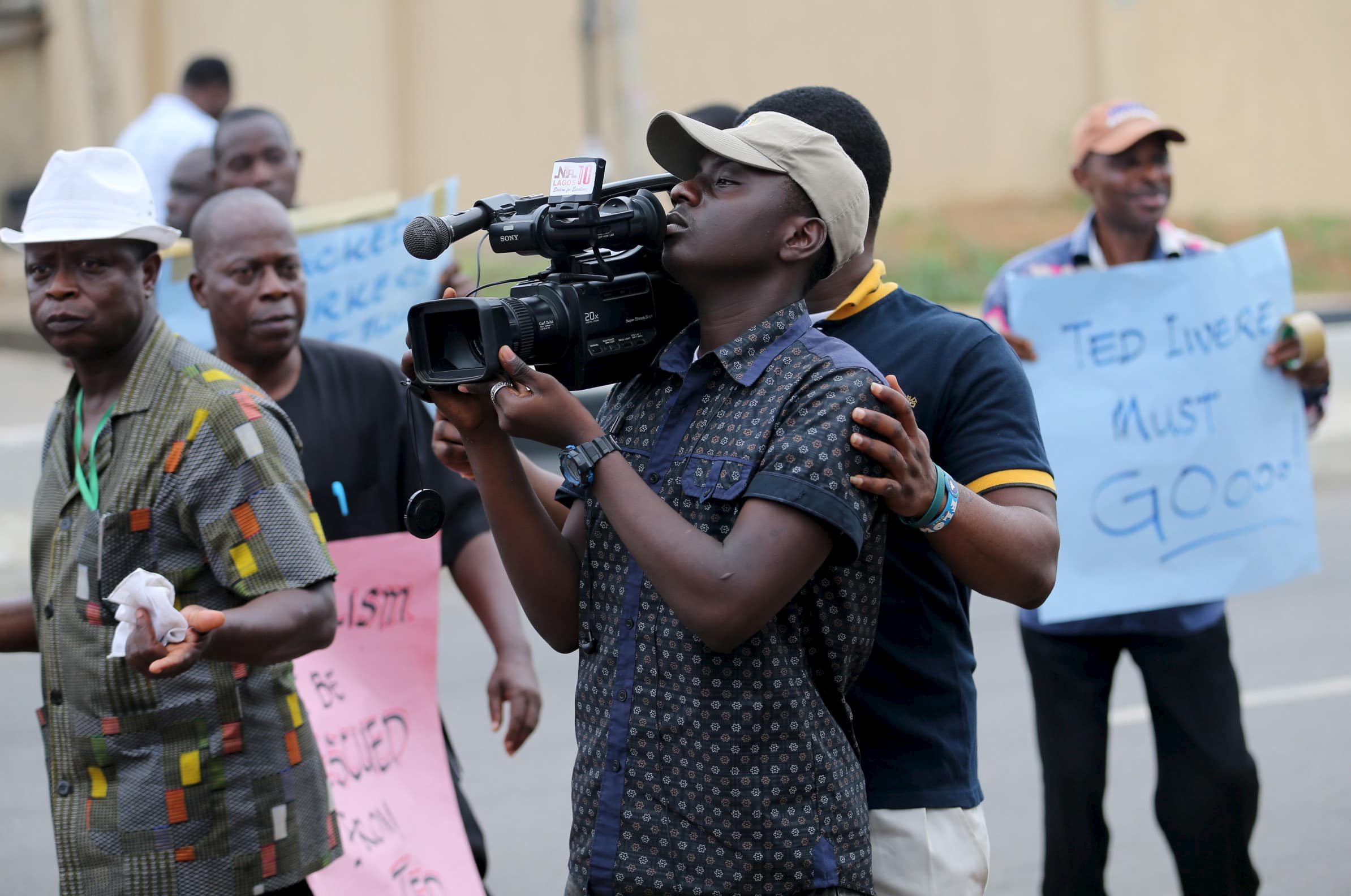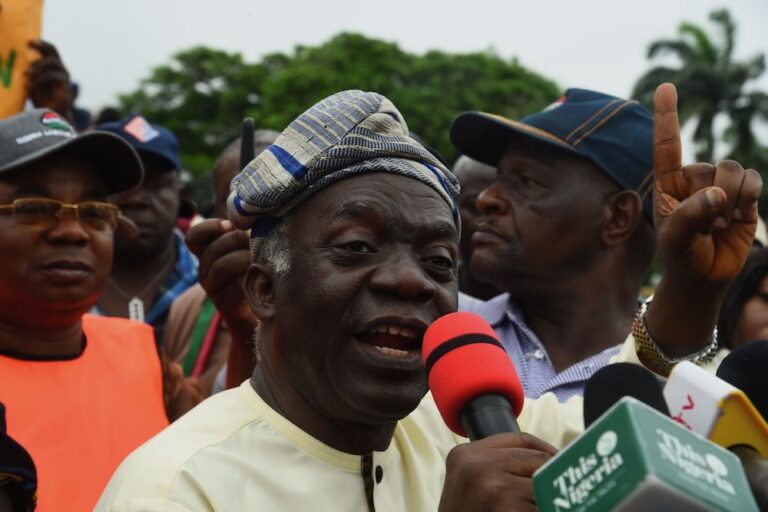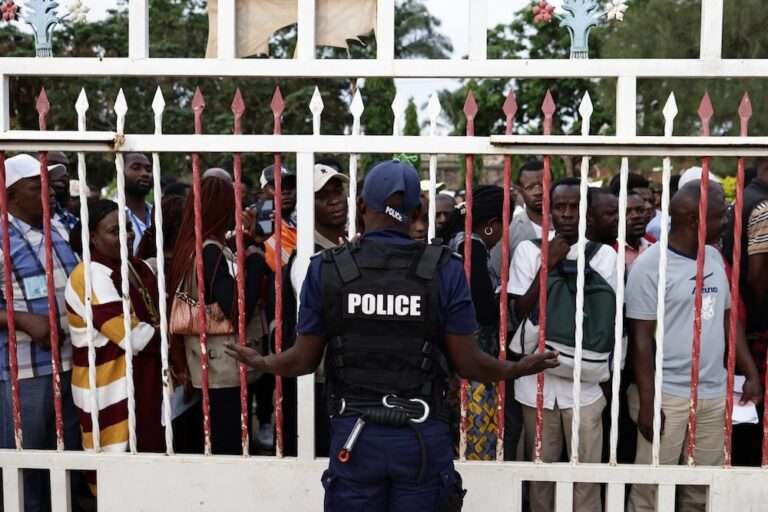The 30 victims, made up of 15 journalists and 15 media technicians, were arrested, detained and/or assaulted in 10 separate incidents in four countries namely Nigeria, Cote d’Ivoire, Guinea and Togo
This statement was originally published on mfwa.org on 20 February 2017.
Press freedom has come under severe attack in West Africa as security agencies, particularly the police, appear to be on rampage against journalists and media workers. In a space of 38 days (January 5-February 12, 2017), 30 media workers have been arrested, detained and/or assaulted by security forces, prompting fears that the gains that have been made in recent years on press freedom and freedom of expression could be eroded.
The 30 victims, made up of 15 journalists and 15 media technicians, were arrested, detained and/or assaulted in 10 separate incidents in four countries namely Nigeria, Cote d’Ivoire, Guinea and Togo. Nigeria recorded six incidents, Cote d’Ivoire recorded two incidents while Guinea and Togo recorded an incident each.
In Nigeria, seven journalists were arrested and detained during the period. In Cote d’Ivoire, six journalists were arrested and detained in a single incident while one journalist each was affected in Guinea and Togo, bringing the total number of journalists affected to 15. In respect of the other media workers, nine staff of a newspaper printing firm were arrested in single incident. In Cote d’Ivoire, six technicians working with the state-owned television station were also arrested in a single incident.
Details of the incidents in Nigeria as presented in a press freedom report on the month of January, shows a growing trend of intolerance on the part of security agencies. Twelve days after the arrest and detention of six technicians from the Ivorian state television, the Radiodiffusion Télévision Ivoirienne (RTI) on January 31, another set of six journalists from four media organisations were arrested by the paramilitary group, Gendarmerie, after being accused of publishing what the authorities described as ‘false news’ and inciting soldiers to mutiny. Their arrest was on the orders of the Attorney General, Adou Richard Christophe.
The journalists – Coulibaly Vamara and Hamadou Ziao, of the Inter newspaper; Bamba Franck Mamadou, of Notre Voie; Gbané Yacouba and Ferdinand Bailly of Le Temps as well as Jean Bédel Gnago, the correspondent of Soir Info at Aboiso – had reported that the government had paid allowances being demanded by mutinous soldiers in the town of Adiake, a claim that the Attorney General, judged to be an “attack on national security.” They were interrogated at the national headquarters of the Gendarmerie and later taken into detention at a gendarmerie camp on February 12 before being released two days later.
In Guinea a reporter of Radio Lynx, Mariam Kouyaté, was on February 1, 2017 accosted by the authorities at a hospital in the capital, Conakry and subjected to intense interrogation. She was subsequently taken to the police station for further interrogation and forced to delete pictures she had taken of the hospital’s poor infrastructure.
On February 7, 2017, Robert Avotor, a journalist with the L’Alternative bi-weekly newspaper in Togo was assaulted by a group of gendarmes, while covering a land dispute. He was arrested, handcuffed and forced to delete the pictures he had taken at the scene of the dispute.
The above crackdown is a frightening flashback to the gross human rights abuses, including freedom of expression rights violations witnessed in the sub-region during the heady days of military dictatorship in the 1970s and 80s. Meanwhile, all the four countries in which these violations occurred have legal frameworks that guarantee media freedom.
The MFWA, therefore, urgently appeals to authorities in the West Africa region, especially authorities in Nigeria and Cote d’Ivoire, to abide by their national constitutions as well as regional and international treaties that require them to promote and protect press freedom and freedom of expression. The MFWA also urges all countries in the region to take urgent steps to bring a halt, the increasing attacks on journalists and media workers.



